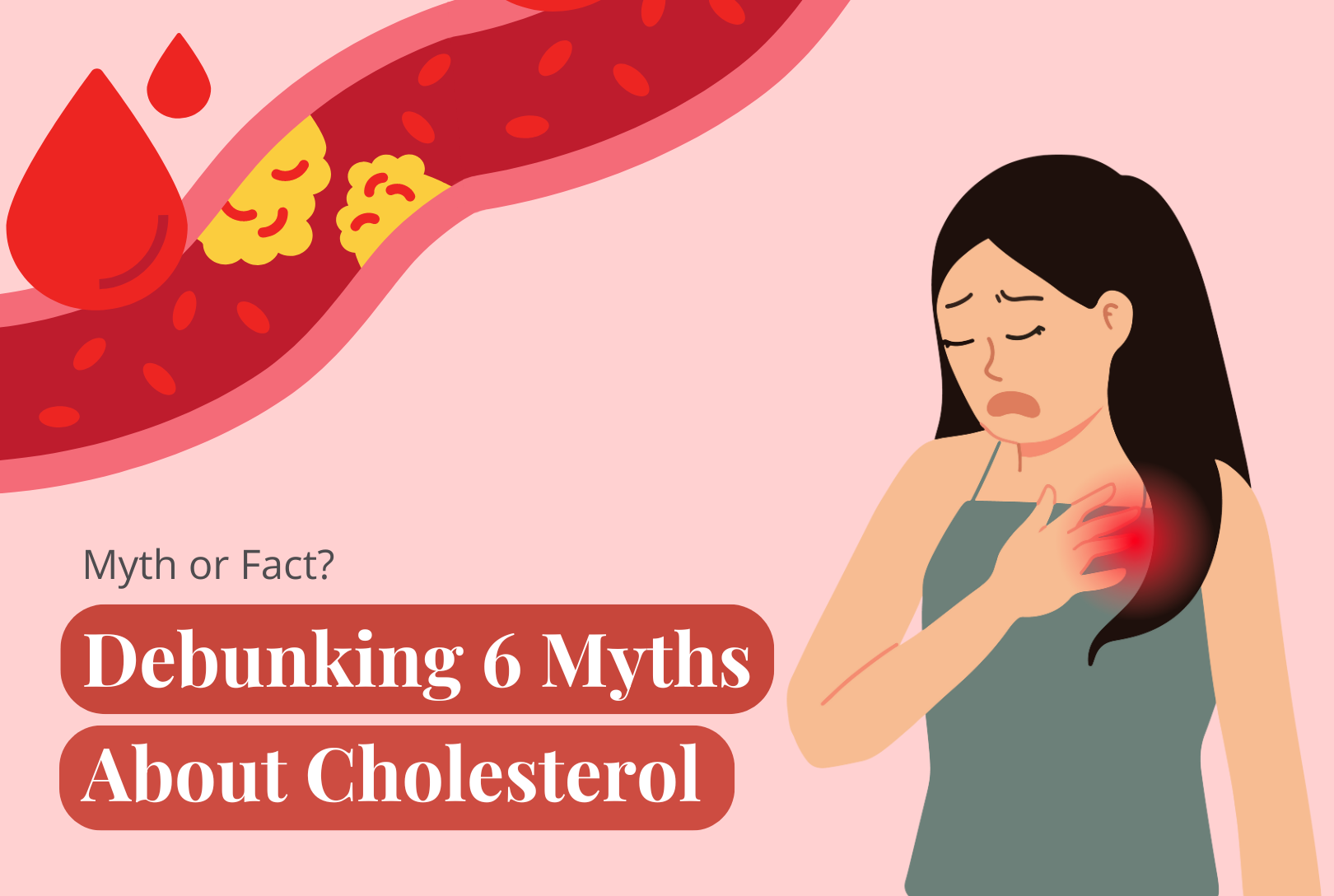Obesity is not exclusively caused by overeating. A sedentary lifestyle alone is not the sole cause of obesity.
Obesity is a complex health issue resulting from a combination of causes and contributing factors. The understanding of obesity has evolved, and it’s now seen not merely as a result of individual choices about diet and exercise but also influenced by genetics, socio-economic factors, and environmental elements.
Comprehensive information about obesity can help dispel common myths and foster more effective strategies for management and prevention. As obesity rates continue to rise globally, it is imperative to distinguish between misconceptions and scientific facts to address this public health challenge effectively. Recognizing the multifactorial nature of obesity is the first step in crafting successful interventions and promoting healthier lifestyles across diverse populations.
Common Obesity Myths
Many people have strong beliefs about obesity. Some think it is about eating too much or not moving enough. Others think if you are obese, you must be unhealthy. These beliefs, however, are often not true. Let’s talk about some common myths about obesity and discover the truth.
Myth: Obesity Is Solely A Lifestyle Choice
Obesity is complex and not just about lifestyle. Science shows us it’s not that simple. Imagine a puzzle. One piece might be what you eat. Another could be how much you move.
But there are many other pieces. Your genes, hormones, and even sleep play a role. Also, where you live can make being healthy harder. Fast food might be everywhere, and parks could be rare. Stress from work or money issues can also lead to weight gain.
It’s unfair to say obesity is only about choices. Many factors are beyond a person’s control. Let’s get the full picture before we judge.
Myth: All Obese Individuals Are Unhealthy
We often think obesity means being unhealthy. That is not the whole story. People come in all different shapes and sizes. Some people can be obese but still healthy. Doctors check your heart, blood, and more to tell if you are healthy.
Health is not just about weight. It includes how you feel and if your body works correctly. Some people who look fit may have health problems. Others may be heavier but in good health.
Believing all obese individuals are unhealthy is wrong. Each person is unique with their health situation. Let’s focus on health, not just the numbers on a scale.
The Complex Causes Of Obesity
Obesity is a growing concern worldwide, often misunderstood as a simple issue of willpower. Yet, science reveals a different story. This complex health condition results from an interplay of multiple factors, extending far beyond personal choice. To understand obesity better, let’s delve into two crucial elements that influence weight: genetics and the environment.
Genetics And Obesity
Our genetic makeup plays a pivotal role in body weight regulation. Specific genes can predispose individuals to obesity, making weight management a significant challenge. These genetic variables can affect appetite, metabolism, and fat storage. Weight struggles often run in families, not just due to shared diets and habits, but also because of inherited traits.
Environmental Factors Contributing To Weight Gain
The environment around us is a powerhouse influencing our weight. Factors like high-calorie food availability, sedentary lifestyles, and stress make it easy to gain weight. The modern world is engineered for convenience, often at the expense of physical health.
- Accessibility to processed foods
- Limited spaces for physical activity
- Marketing of unhealthy food options
- High-paced lifestyle reducing time for home-cooked meals
Understanding the breadth of these influences is key to addressing obesity. Weight management programs benefit from a holistic approach that considers individual aspects and larger environmental factors.
Misconceptions About Dieting
Misconceptions about Dieting swirl around us like whispers in the wind. Dieting has become a buzzword often used in the fight against obesity. Yet, amidst this battle, myths take root, shaping beliefs and actions. Not all that glitters is gold, and not all dieting advice leads to a pot of health at the end of the rainbow. Here we debunk a couple of the most stubborn dieting myths.
Myth: Fad Diets Ensure Long-term Weight Loss
Many believe fad diets can fix weight woes forever. This is far from true. Fad diets often promise quick results with little effort. They may help shed pounds swiftly, but most people regain weight once they stop.
- Short-term Fix: Fad diets are a quick fix, not a long-term solution.
- Missing Nutrients: These diets can miss important nutrients the body needs.
- Yo-Yo Dieting: Fad diets can lead to a cycle of losing and gaining weight.
Myth: Rapid Weight Loss Is Sustainable And Safe
Tempting as it sounds, rapid weight loss is neither safe nor lasting. Slow and steady wins the race. Quick weight loss can harm the body. It can also lead to future weight gain.
| Rapid Weight Loss | Steady Weight Loss |
|---|---|
| Can weaken muscles | Helps build strength |
| May lead to malnutrition | Allows for balanced diet |
| Often causes weight gain after | Encourages lasting habits |

Credit: www.raffleshealth.com
Exercise Misunderstandings
Many people think wrong about exercise and obesity. This section will bust some common myths. Let’s shed light on the truths behind exercise.
Myth: Exercise Alone Can Overcome Obesity
Moving your body is great, but it’s not enough.
Fighting obesity needs more than just exercise. What you eat is key too. A mix of diet, sleep, and stress management works best.
- Exercise boosts health.
- Diet is crucial for weight loss.
- Sleep and stress affect weight.
Exercise is just one piece of the puzzle. Relying only on it won’t solve obesity.
Myth: Specific Exercises Can Target Fat Loss
Spot reduction is a common myth.
You can’t choose where to lose fat. Your body decides that.
| Myth | Truth |
|---|---|
| Crunches melt belly fat. | They strengthen muscles but don’t target fat. |
| Squats slim thighs. | They tone legs, but can’t select fat areas. |
Workouts improve overall fitness. They can’t pinpoint where you’ll lose fat. Total body health is the goal. Focus on a balanced routine.
Addressing Misinformation
Understanding obesity requires sifting through facts and myths. Misinformation can shape false perceptions. It’s vital to challenge untruths with evidence. Let’s debunk common myths about obesity.
Impact Of Social Media On Obesity Perceptions
Social media influences how we view obesity. Platforms sometimes spread misleading ideas.
- Images may promote unrealistic body ideals.
- Comments can foster stigma rather than support.
- Misinformation can overshadow science-based advice.
Users must evaluate sources and seek reliable information.
The Role Of Education In Combating Obesity Myths
Education dispels myths effectively. Schools and communities must teach about:
- Healthy Eating
- Exercise Benefits
- Body Positivity
Interactive lessons and fact-based materials can empower individuals. This helps build a truthful understanding of obesity.

Credit: www.scmp.com
Embracing A Holistic View On Obesity
Welcome to a refreshing perspective on tackling obesity, embracing a holistic view. This approach doesn’t just look at food or exercise. It is about the entire lifestyle. Understanding obesity involves nutrition, physical habits, and mental wellness.
Integrating Mindful Eating With Regular Exercise
Mindful eating and regular exercise form a powerful duo.
- Mindfulness helps you enjoy your food more.
- It encourages awareness during meals.
- Exercise increases energy levels.
- Working out regularly boosts metabolism.
Pairing these habits leads to better health choices and sustainable weight management.
The Importance Of Mental Health In Weight Management
Your mental state greatly affects your body weight. Stress and anxiety can lead to unhealthy eating habits. On the other hand, good mental health supports positive lifestyle changes.
| Mental Health Aspect | Impact on Obesity |
|---|---|
| Stress Management | Less stress eating, better weight control. |
| Positive Mindset | More motivation to stay active and healthy. |
Support systems and therapy can be essential. They help to manage emotions and set realistic goals.

Credit: www.amazon.com
Frequently Asked Questions Of Which Of The Following Statements Is Not True About Obesity
Which Of The Following Is Not True About Obesity Quizlet?
Obesity is solely the result of poor self-control is not true in a Quizlet about obesity. Genetic and environmental factors also play crucial roles.
What Are 3 Facts About Obesity?
Obesity is a condition with excess body fat accumulation. It increases the risk of heart disease, diabetes, and certain cancers. Lifestyle choices, genetics, and environmental factors contribute to obesity development.
What Is True About Obesity?
Obesity is characterized by excessive body fat accumulation. It poses significant health risks, including diabetes, heart disease, and certain cancers. Lifestyle choices, genetic factors, and environmental influences contribute to its development. Managing obesity often requires a combination of diet, exercise, and sometimes medical intervention.
Which Of The Following Statements Is Not True About Childhood Obesity In The Us?
Childhood obesity in the US is decreasing annually.
Conclusion
Understanding obesity requires dispelling common myths and embracing scientific truths. As we’ve explored, not all widely-held beliefs about this complex condition are accurate. Armed with the correct information, we can make better choices for our health. Let’s commit to ongoing education and support those facing obesity with empathy and evidence-based strategies.
Together, we can tackle the misconceptions and contribute to a healthier society.


